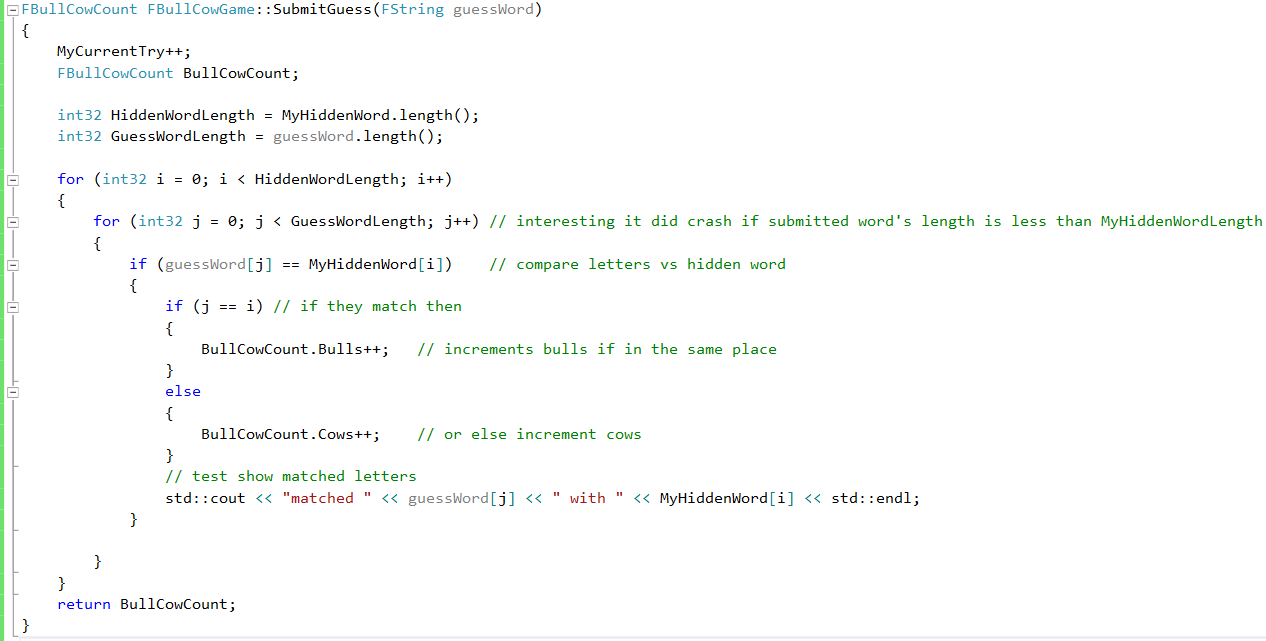Took quite a bit of time to figure out what to do.
I had to Google how to access the FString Guess that was submitted because it didn’t have a name !
It also crashed when the guessWord.length() was less than the HiddenWordLength since it ran out of letters to access so I created a GuessWordLength analagous to HiddenWordLength to limit the checking.
The checking uses the j count as that loop is associated with GuessWordLength.
However I don’t know why the Cows and Bulls count reset after each loop, I think it should only go up until the game resets.

